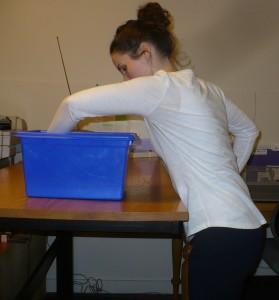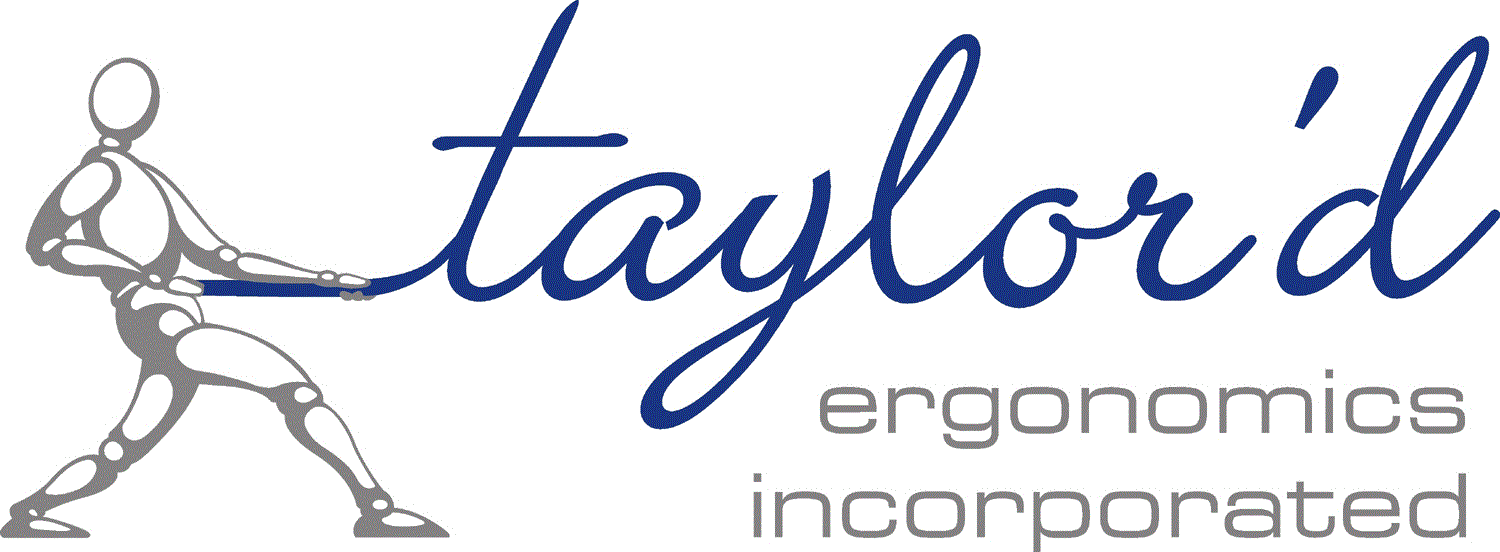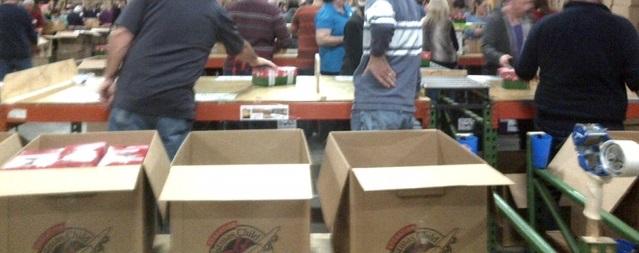Do you ever wonder about the physical demands of elves? (OK, maybe you don’t.) Do you ever wonder how the North Pole’s HR Manager gets injured elves back to work? (Work with me here…)
I recently had the opportunity to act as Santa’s helper at an “Operation Christmas Child” warehouse, which was a surprisingly demanding, yet rewarding experience. If you’ve ever filled a shoe box to be sent to a child overseas, you’ll be familiar with this charity. At the warehouse, the boxes are inspected, topped up, and boxed for shipping. I’ve spent many years studying assembly lines, and making recommendations to improve them, but I’ve never actually had the opportunity to work on one. I admit, this was “best case scenario” – everyone was jovial, the atmosphere was festive, and we were only there for 3 hours. Nevertheless, I found myself thinking about the physical demands of my new job. My inner ergonomist never rests.
Our Physical Demands Analysis (PDA) course was on my mind (register here), so I thought I’d take a first person perspective on how I would do a PDA for the job I was assigned to in the workshop.
The first step is to understand the primary job objective of my job; I was a “Filler”. I assembled bins of assorted material, and delivered the full bins to the line using a cart. In other workplaces, this job might be called a material handler, water spider, or stocker. It was a busy job – demand for bins increased as the night went on, and with only two of us supplying about 30 assembly lines (each with 4 bins to re-stock), we were hopping. Filling the bins required us to carry the bin along a stock table, inserting one or two of each “filler” item into the bin, and then placing the full bin on the cart. We then pushed the cart into the assembly area and replaced empty bins with full ones. My co-worker and I took turns filling and delivering.
Once the primary job objective is established (the goal of the job), the essential and non-essential duties can be established and described. For example, for the task of filling the bins:
 Fill bin. The Filler retrieves an empty bin from a large container, and carries it in the non-dominant hand, 13 m total, around the stock room. S/he selects one or two items from each toy container with the dominant hand, and places the items in the bin. S/he places the full bin on the delivery cart.
Fill bin. The Filler retrieves an empty bin from a large container, and carries it in the non-dominant hand, 13 m total, around the stock room. S/he selects one or two items from each toy container with the dominant hand, and places the items in the bin. S/he places the full bin on the delivery cart.
Each essential duty must photographed and measured. For each task, our PDAs include forces (weights, push, pull, grip, and pinch forces), hand heights and reaches, and posture descriptions. Everything is tidily summarized in cells in a chart.
Many PDAs consist of checklists indicating whether physical demands are present or not, with some frequency description. Lifting? Yes, “often”. Gripping? Yes, “constantly”. Describing the demands by task allows Santa’s HR Manager to ensure that return-to-work opportunities accommodate elves returning to work from injury or illness. Chippy can’t walk more than 5 m at a time? Maybe place him at the Sorter job for now… We also avoid the use of poorly understood terms like “rarely”, reporting instead the actual frequency and duration of tasks and demands.
This job required some interesting cognitive demands….we’ve been asked recently if we do “cognitive demands analyses”. Our PDAs do include cognitive components, including numerical literacy, decision making, confrontational situations, and various forms of work pacing. The pacing on this job was driven by demand…if we were more experienced Fillers, we would have better understood that we should be filling bins like crazy in the first hour, rather than pushing the delivery cart through the warehouse before the sorters needed filler material. We ran out of full bins in the second hour of our shift, so the Filler left in the stock area was nearly running to keep up, and the Filler pushing the cart ran out of material before she could finish a full lap. I didn’t need math or literacy skills in this job. Decision making was fairly basic; while there are interesting restrictions around what can be shipped overseas to children (no candy, no liquids, no war toys), other elves were filtering these items out before my job, and items were checked again before shipping.
If your “workshop” needs some PDAs, contact us for a quote, or sign up for our January PDA course so you can do your own PDAs in-house. In the meantime, have a wonderful holiday!


